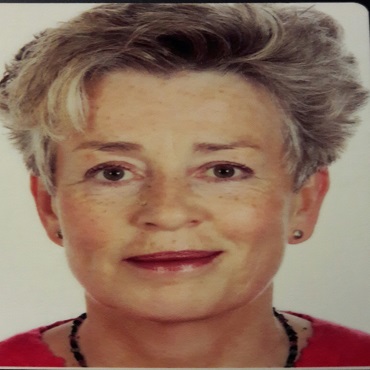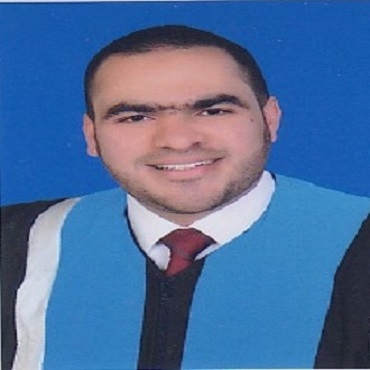Scientific Program
Keynote Session:
Title: The introduction of the Open Dialogue Approach into daily practice of psychiatry, especially focusing on the role of so trained nurses
Biography:
Sabine Schütze after graduation from medical studies at the University of Hamburg, Germany in 1983 she began an internship at the Psychiatric Department of the University Hospital in Hamburg, which included a training in CBT. In 1988 she continued on specialization in the department of Neurology and Psychiatry at the General Hospital in Berlin-Moabit, where she was engaged in teaching psychiatric topics to young nurses. After completion of her internship in 1992 she applied as a certified psychiatrist and psychotherapist for the position as a senior psychiatrist at the Klinikum Am Urban in Berlin-Kreuzberg, where she focused her work on the themes of addiction and personality disorders. From 1994 to 2018 she worked as a senior psychiatrist in the Vivantes Hospital Berlin-Neukölln.
Abstract:
The Open Dialogue Approach is both a community-based and social network-oriented treatment system offered to persons in psychic crises and their families, which follows certain guidelines as e.g. immediate help, which is given in a flexible and mobile way, and a special therapeutic attitude with a way of communication with the patients and their families. The essential elements of this communication have to be trained, which may take place as an in house-training or within a series of workshops visited by members of different institutions. Though these training groups are usually multiprofessionally composed, so that participants of different backgrounds learn together, the importance of considering psychiatric nurses in these trainings has to be pointed out: as one of the characteristics of the ODA consists of its non-hierarchical attitude, so trained nurses usually enjoy an improved position in their team, respectively in the contact with patients and their families, experiencing themselves as more competent and interested in the contexts of crises. This process will be illustrated by the example of the feedback to a questioning carried out with psychiatric nurses after an in house-training in a psychiatric hospital in Berlin.
Title: Designing Simulation interventions to Reduce Stress Among New Graduate Nurses in the Intensive Care Units in Saudi Arabia: A Mixed Methods Design.
Biography:
Aida Sanad Alqarni has completed PhD in Medicine Nursing (2018) speciality (Critical care for adults) at University of Adelaide (UOA) in Australia, Master of Nursing Science 2011 at UOA. Bachelor of Nursing Conversion, Murdoch University, WA (2010), Diploma in teaching clinical instructor program of ministry of health Saudi Arabia (2003-2004). Diploma (nursing) ABHA College Female of Nursing Associated Degree), Saudi Arabia Awarded the intermediate university degree in Health Science in the field of general nursing (1998- 2001; 1992-1995). Employment: Registered nurse working in the critical care units (1994-2008) and Clinical educator (full-time position) at King Khalid University (Formerly known as Female ABHA college of Nursing) (Saudi Arabia).
Abstract:
The aim of this study was to explored stressors among new graduate registered nurses in the intensive care units (ICUs) in one hospital in Saudi Arabian and explores the use of a complex intervention of simulation based learning exercise (SBLE) to assist in reducing stress. Methods: This research was designed based on mixed method design with interventions. The research involved three studies, which incorporated both quantitative and qualitative approaches, whereby a sequential exploratory design was explored. Study 1: 189 Saudi new graduate registered nurses were surveyed about their experiences of stress in their units using the expanded nurse stress scale (ENSS) and perceived stress scales (PSS). Study 2: Interviewed 5 nurse educators in one group discussion about their educational support for graduates in their units. Study 3: Individual interviews of 10 new graduate registered nurses of their experiences in ICUs. Results: The results from both the approaches were then integrated using complementarity and triangulation techniques, and was designed a complex intervention which was Simulation Based Learning (SBL) but not implemented to potentially better manage these stressors. The results showed that the Saudi new graduate registered nurses were indeed exposed to a plethora of high level stressors working in such a challenging environment. Conclusion: As consequence the SBLE has been designed based on this findings and in the future will be tested. This research has contributed new knowledge regarding to the stressors experienced by Saudi new graduate nurses working in the ICUs. This study offers important recommendations and insight for the further to the new graduate nurses to be considered
Title: Comparing effect of concept map and lecture method on Diabetes learning level
Biography:
Dondu Sanliturk is an Assistant professor at the Faculty of Health Sciences in Nursing department, Tokat Gaziosmanpasa University. She holds master degrees in internal medicine nursing. She obtained her PhD from University of Gazi. Her research interests include care burden in caregivers, asthma control and management, diabetes management, scale development, concept map and planned behavior theory in nursing care.
Abstract:
Effective approaches to diabetes education are important for learners to develop basic competence in handling patients with diabetic problems. The concept map-based teaching method enables nursing students to connect new information to existing knowledge and integrates interdisciplinary knowledge. However, there is a lack of evidence related to the concept map-based teaching method in nursing education. The purpose of the study was to determine the effect of concept map-based and lecture-based teaching methods on the level of nursing students’ learning in Diabet. This pretest posttest semi-experimental study has been conducted in the nursing school of Tokat, Turkey in 2019. In total, 56 second grade nursing students participated in the study. After the students were ranked according to the university entrance score, the students in the list were selected from the beginning and the end and were divided into concept map (n=28) and lecture groups (n=28) respectively. The effect of education on knowledge (before, immediately after the session) was studied. Data were collected through two questionnaires. The first one was demographic data included age, gender, employment status, place of residence and mean diploma. The second was a multiple choice questionnaire with 20 questions. There was no significant difference in terms of sociodemographic characteristics of students in the concept map and lecture group (p> .05). No significant differences were found between the mean scores of knowledge before intervention (p> .05). After the intervention, the mean scores of knowledge were statistically significant between the two groups (p < .05). In achieving the level of nursing students’ learning in Diabet, it seems that the concept map-based teaching method was more effective than the lecture method. In conclusion that concept map-based as the educational method could encourage a group of nursing students knowledge of diabetes, which might ultimately result in better nursing care quality.

Marie M. Spivey
Principal/Consultant with the System for Education, Equity & Transition, LLC (SEET Consultants, LLC), USATitle: Implicit biases: Interference in culturally congruent provision of health care.
Biography:
Marie M. Spivey is a Principal/Consultant with the System for Education, Equity & Transition, LLC (SEET Consultants, LLC). She is a Registered Nurse who holds an EdD and MPA, both from the University of Hartford, and a BS Degree in Human Service from Southern New Hampshire University. Dr. Spivey’s professional focus is to present forward-thinking insights into the strategic planning process of organizational decision-makers and academic classrooms in order to enhance their ability to incorporate culturally and linguistically appropriate services and standards into their policies, procedures and practices. Dr. Spivey is an innovative interorganizational leader and educator prepared to provide professional staff of clinical organizations and agencies with a better understanding of health inequities directly affecting the quality of life of the individuals and families they serve. Dr. Spivey aids health care organizations to recognize internal implicit biases, and racial discriminatory injustices as a means to incorporate diversity, equity and inclusion into their policies, procedures, practices and academic teachings. This process enables organizations and classroom teachings to effectively and efficiently improve common understanding and value of learned cultural congruence.
Abstract:
Nurses and healthcare professionals across the world have unconsciously internalized implicit biases within their services, influenced by pervasive learned behavior, attitudes, and stereotypes. These biases can easily interfere with our understanding, actions, and decisions when healthcare services are performed. Such features can also be evidenced in healthcare organizations’ recruitment, support, and retention policies, as well as the education and training elements included in academic curricula. Initial classroom preparation for nurses is based on an environment of learning related to the nursing Code of Ethics, legal requirements, care management, quality improvement, and in todays world of changing responsibilities – systems-level change management. However, opportunities to elicit perceptions of discrimination and discomfort in an unobtrusive manner from a diverse student body remains untouched. The objective of this presentation is to promote the inclusion of underlying academic policies to attract, advance and better prepare nurses by embedding building blocks of self-assessment, self-advocacy, and the identification of implicit bias into every aspect of teaching, learning, and practice for all nurses. In order to heighten the culturally congruent understanding and performance critically required for patient satisfaction, nurses must also have continuous opportunities to effectively improve communications that enhance peer-to-peer working relationships Nurses will emerge from professional development opportunities possessing a higher level of comfort and knowledge in their ability to demonstrate more culturally congruent communication with peers, patients, other healthcare professionals and stakeholders. In so doing, they will have the ability to facilitate the achievement of health equity, strengthened relationships, and a framework for cultural competence.
Title: The influence of leadership behaviors and hospitals' organizational culture on incidents Reporting practices as perceived by Jordanian hospitals registered nurses
Biography:
Islam Oweidat holds Bachelor degree in General Nursing sciences from Jordan University of Science and Technology (Jordan), excellent degree. He has a Degree of Master in Nursing Services Administration from Jordan University of Science and Technology (Jordan), excellent degree. The Master thesis was titled by "The relationship between emotional intelligence and job performance among Jordanian hospitals' registered nurses". Published in Nursing Forum Journal. Current PhD candidate at the school of Nursing at the University of Jordan, Dissertation titled by "The influence of leadership behaviors and hospitals' organizational culture on incidents reporting practices as perceived by Jordanian hospitals' registered nurses" Literature review part was published in Open Journal of Nursing.
Abstract:
Statement of the Problem: in Jordanian context there are many clinical incidents are going underreported due to many factors and barriers existed in healthcare institutions. Researchers have reported that leadership behaviors and existed organizational culture will affect the way that nurses do reporting for the incidents that they face in their practical lives. The purpose of this study is to investigate the influence of leadership behaviors of nurse managers and hospitals' organizational culture on incidents reporting practices as perceived by Jordanian hospitals' registered nurses, and to compare these concepts among registered nurses in different health sectors. Methodology: A descriptive cross sectional, correlational survey was used for the present study. cluster sample from working nurses in all healthcare sectors in Jordan (governmental, private, and university-affiliated teaching hospitals were recruited by simple random sampling technique, with sample size about 325 registered nurses. response rate was about 85%. Results: nurses in teaching hospitals have the best perceptions of their leaders in practicing leadership behaviors (M=6.92, SD=1.19). Moreover, nurses in private hospitals perceived their hospitals as having positive culture (M=2.85, SD=0.53). There was a medium positive relationship between leadership behaviors and culture (r=0.423, p=000), and there was a small positive relationship between hospitals culture and incidents reporting practices (r=0.185, p=0.001). The major barrier that was reported by nurses that hinder them to report was worrying about disciplinary actions (M=3.19, SD=1.32). Conclusion & Significance: the most important factor in healthcare institutions is to create transformational leaders that will create a supportive and just culture that will enhance the reporting practices of nurses in a timely manner and in an appropriate way. Recommendations: there is a huge responsibility upon nurse legislators to create a supportive nursing environments for their nurses in order to enhance the reporting practices of any incident that is being happened on daily basis.
Title: Lean Healthcare Methodology in Nursing office
Biography:
Abstract:
The aim of the study was to describe the prevalence of Tokophobia-- childbirth related fears among first time expectant fathers and associated factors. Method: A cross sectional design consisting of individual interviews using Childbirth Related Fear Questionnaire (CRFQ) with 30 Likert-type items, scored on a 4-point scale, ranging from low fear (1) to severe fear (4), with the scores ranging from 30 to 120 was used. Purposive sample of 413 first time expectant fathers attending the antenatal clinics along with their low risk term primigravidae at 36-40 weeks of gestation in three maternity hospitals participated. Results: The results revealed that larger proportion (78.4%) of first time expectant fathers suffered from Tokophobia -fear of childbirth during pregnancy. The men’s fear was primarily related to the health and life of their partner and child, and their main worry concerned with the child. The men also had a higher level of general fear on labor &delivery, professional competency, behavior, insufficient medical treatment, fear of not being treated with respect and dignity, fear of partners’ &own capabilities, fear of exclusion from decision making, financial matter and fear of responsibilities as fathers. There were no statistically significant differences in the baseline characteristics of men and Tokophobia. Conclusions: Healthcare professionals need to acknowledge that first time expectant fathers have needs of their own during pregnancy and childbirth. Fathers also worry and fear about the child and the woman , so they need explanations about normal changes as well as possible complications. Experiencing intense fear related to childbirth constitutes a significant burden for expectant fathers. This calls for preventive obstetric care strategies to identify, involve and support fearful expectant fathers in their own right, in all aspects of maternity care and be offered opportunities to discuss their feelings and any fears that they may have.






